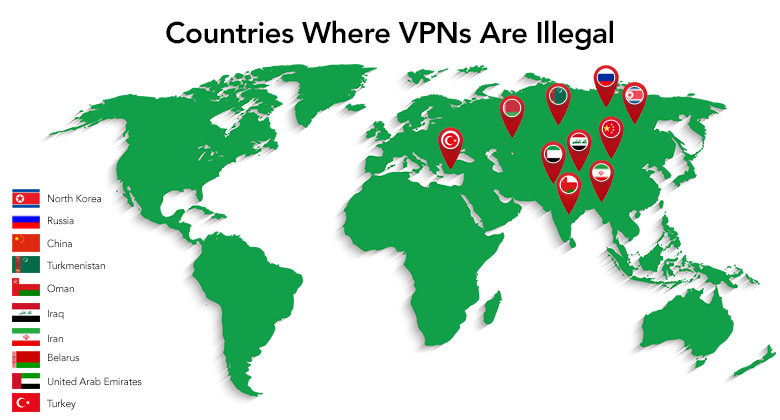Are VPNs Legal?
Are you wondering "Are VPNs legal in my country?" Read on to find out!
Virtual private networks, more commonly known as VPNs, are great for maintaining privacy and evading location-restrictions on the Internet. These powerful tools not only hide your IP address but also encrypt all your traffic to make your online activities anonymous.
Though VPNs provide a plethora of benefits and are generally legal, a number of countries do forbid them from being used. So if you’re looking for information about VPN legality in your country, you’ve come to the right place.

However, before we discuss where exactly the use of a VPN is permitted or forbidden, let’s first answer what’s probably the most asked question on the Internet, given the sharp rise in surveillance and censorship efforts…
Are VPNs Legal?
Yes! VPNs are legal in the vast majority of countries around the world, but using it for any kind of illegal activity isn’t allowed. It goes without saying that if you’re up to no good over a VPN, you can and will be prosecuted by law.
So, while a VPN can help protect your online identity and personal data from prying eyes, engaging in illegal activities like selling drugs, spreading malicious software, or engaging in unethical activities like stalking, bullying, hacking or theft of data most probably will get you in serious legal trouble.
Sadly, there are some countries where the use of a VPN is illegal, but that has more to do with them wanting to keep a close eye on the online activities of their citizens and controlling what information they’ve access to.
Legitimate Uses of a VPN
One common misconception when it comes to VPNs is that they’re only needed by nerds or individuals hiding in their basements and indulging in some sort of unlawful activity. However, nothing could be further from the truth. As with any invention or creation, nothing is inherently bad. It’s just about how people use it.
Here are some popular uses of a VPN:
- All
- A
- B
- C
- D
- E
- F
- G
- H
- I
- J
- K
- L
- M
- N
- O
- P
- Q
- R
- S
- T
- U
- V
- W
- X
- Y
- Z
Countries Where VPNs Are Illegal
The following countries frown upon the use of VPNs and have instituted either a partial or complete ban on them:
Countries Where VPNs Are Legal
The following countries have no laws that prohibit the use of VPNs and their citizens can use them without having to worry about any legal repercussions: